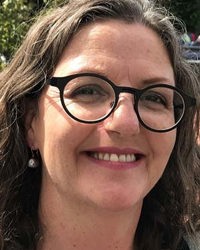Development of model of care for telepalliative care
Telepalliative care, as a supplement to specialised palliative care, has evolved as a novel method and is altering the provision of palliative care.
PROJECT PERIOD
Start: January 2021
End: December 2026 (part time PhD)
Currently the demand for palliative care exceeds specialists’ abilities to provide palliative care both in Denmark and internationally. This demand will continue to rise because of growing elderly populations, improved treatments and an increase in the number of people living with co-morbidities.
Studies have shown that telepalliative care supports the care of patients in their own homes, enables family participation in consultations, increases access to specialists and is cost effective. The surge in use of telehealth during the current pandemic displays the potential and possibilities that exist both generally, and in telepalliative care.
However, concerns and barriers exist such as lack of face-to-face contact, lack of willingness to practice, poor change management, lack of training and data security, reimbursement and technological issues which may impede further expansion and general adoption. As a result, expansion is slow leading to patients and families having limited access to palliative care.
AIM
The aim of the project is to propose an international model of care for telepalliative care. This will be carried out by:
- systematically reviewing the current state of telepalliative care
- exploring how telepalliative care transpires from the perspective of patients, families and healthcare professionals
- collating the evidence in cooperation with stakeholders to develop a model of care
For the purpose of this project, telepalliative care is limited to real-time video-consultations between users.
Understanding the methods and territory of telepalliative care, including the ability to provide mediated empathy and compassion and appropriate timeliness of the intervention, may reduce adaptation barriers, increase benefits for patients and families and expand the use of telepalliative care.
PARTNERS
The project is based at The Hospital of Southern Jutland (Sygehus Sønderjylland) in Denmark. Data collection will take place at two Palliative Care Centres in Denmark (Soenderborg and Odense) and one in Brisbane, Australia.
The project is a PhD project by Eithne Hayes Bauer.
The main supervisor on the PhD project is Associate Professor and Palliative Care Consultant Georg Bollig. Co-supervisors are Karin Brochstedt Dieperink, Frans Brandt Kristiansen and Anthony C. Smith.
EXTERNAL FINANCING
The project is funded by the Hospital of Southern Jutland, Denmark and a PhD scholarship from The University of Southern Denmark.

Eithne Hayes Bauer
Nurse, PhD student
University of Southern Denmark, Department of Regional Health Research
(+45) 7997 3086 ehb@rsyd.dk
